Iran Says US Reiterates Resolve To Reach Nuclear Deal
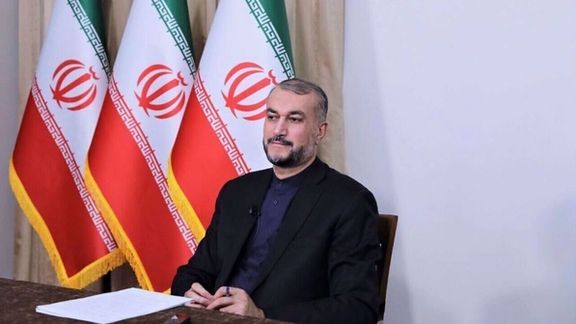
Iran’s Foreign Minister Hossein Amir-Abdollahian says the Americans have sent Iran a message “in recent days” expressing their resolve to reach a deal in good faith.

Iran’s Foreign Minister Hossein Amir-Abdollahian says the Americans have sent Iran a message “in recent days” expressing their resolve to reach a deal in good faith.
“We told them to realistically translate their words into action so that we can reach a deal,” he said on Saturday, referring to a final agreement on the revival of the 2015 Iran nuclear deal, officially known as the Joint Comprehensive Plan of Action (JCPOA).
Amir-Abdollahian, who is still in New York holding meetings on the sidelines of the 77th UN General Assembly session, highlighted that he has made it clear to representatives of the European Union and signatories to the JCPOA that Iran possesses the required will and determination to reach an agreement.
“It is now the American side that must have the courage to take a decision in order for us to talk about striking a good, strong, and durable agreement,” the Iranian foreign minister pointed out.
Since the start of the popular protests in Iran over the death of 22-year-old Mahsa Amini in custody of hijab police, the prospect of restoring the deal seems even dimmer.
US Special Envoy for Iran Robert Malley said Saturday, “While Iran’s government brutalizes peaceful demonstrators and tries to choke off Iranians’ access to the global internet, the United States is taking action to help the Iranian people communicate with one another.”
Iran's Foreign Ministry spokesman said earlier in the day that the US Treasury's move to issue a General License to boost support for internet freedom in Iran is an effort to "violate Iran's sovereignty" and will not remain unanswered.
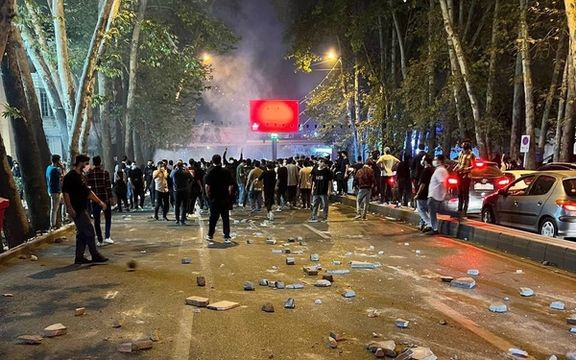
The Islamic Republic's tactic to deal with any major unrest has been firing at protesters, arresting activists, then staging a rally to show it has legitimacy.
The government did the same during the protest that followed the death in custody of a young woman which enraged large groups of Iranians including, most noticeably, women and youths. The regime used force and then tried to put up a show of force, which was the rally on Friday along a half-a-mile route turned out to be a fiasco.
Even the news program on Channel 3 of the state television on Friday was not convinced that the lacklustre rally was a definitive answer to more than a week of protests in Tehran and over 80 other cities. As Abolfazl Najafi Tehrani, an Iranian cleric wrote on Twitter on Saturday, the government is likely to lure and bus demonstrators from small towns around Tehran for yet another "definitive" show of support on Sunday.
In another odd event, the Channel 3 evening news, showed nearly all the user-generated videos of protests that had been aired by foreign-based satellite televisions beaming into Iran, but at the end of every clip it pointed out that protesters insulted the regime’s values, which was true, as demonstrators have made it clear that they do not want the Islamic Republic and clerical rule.
During the past 43 years, the Islamic Republic has done everything possible to impose its "values" on Iranians. However, the presence of tens of thousands of Iranians born after 2000 in the protests revealed that state propaganda has not been successful. Protesters showed to politicians that the teachings of the Islamic Republic are different from those of Islam. They grew up to know the Islamic Republic through major financial corruption cases, inefficient economic and foreign policy, and coercive domestic politics.
A large gathering in front of the notorious Evin prison on Saturday, the beginning of the week in Iran, of individuals looking for their "disappeared" family members, revealed the extent of the government's violence against protesters during the past week. There are long lists of those who have disappeared in recent days on various social media platforms.
Nonetheless, the protests continue with an ever-increasing momentum in the streets of Iran. The government specially cannot believe the large scope and severity of the protests in the religious cities of Qom and Mashad, where protesters fiercely "disciplined" the security forces. Cities such as Rasht, Qazvin, and Tehran have been the scenes of massive anti-government rallies particularly on Friday night.
The continued confrontation after the Islamic Republic's staged-managed rally of its supporters, show the government and protesters, are still testing each other's determination. According to reports, government forces killed at least 35 protesters until Friday. But the actual casualty toll is obviously much higher, as it has always been. In 2019, it took several weeks after the end of the protests for the media to realize that at least 1,500 protesters were shot dead. However, this round of protests still continue with slogans getting increasingly serious. What they chant in the streets is no longer about hijab or the heavy-handed morality police. Based on what they do and say, they want nothing less than a regime change. Whether this is feasible or not, will, among other things, depend on the government and the protesters' determination and their ability and logistics to continue the confrontation.
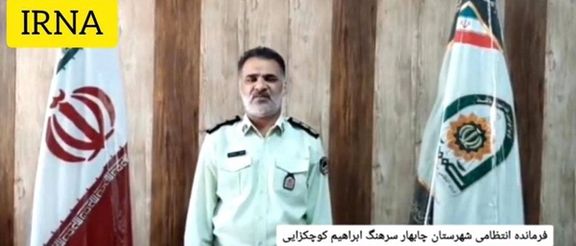
A leading Sunni cleric in Iran, sometimes critical of the government, has implicitly confirmed reports about the rape of a 15-year-old girl by a police commander.
Molavi Abdolhamid, the religious leader of Iran’s largely Sunni Baluch population living in the southeastern province of Sistan and Baluchestan referred to the incident during his sermon on Friday, describing it as “the incident,” without elaborating the names and the details of the case.
Haalvsh website, a local news outlet, first reported the rape earlier in September but the case was buried, and no investigation took place to follow up the case.
Colonel Ebrahim Khouchakzai, the commander of the police in the city of Chabahar, allegedly raped the 15-year-old girl when he was investigating a murder case in one of the neighborhoods of the city. Apparently, the girl was the daughter of one of the neighbors of the murdered woman and Khouchakzai took her to his office for questioning and raped her.
The girl came back home and told her mother that the colonel stripped her clothes off under the pretext of checking her body and then raped her.
According to the latest reports, the police forces of the city have taken hostage three relatives of the rape victim to force her family to publicly deny the reports and promise not to file complaint against Colonel Khouchakzai.
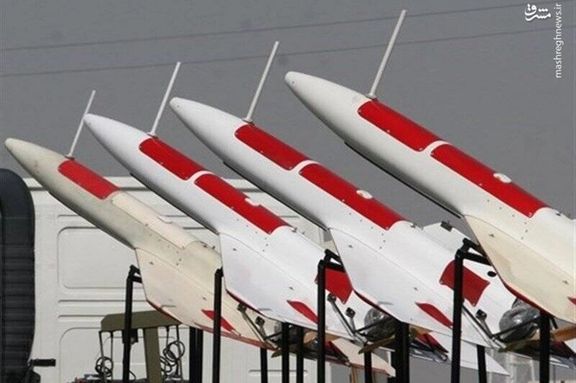
Ukraine Friday downgraded diplomatic ties with Iran for supplying Russia with drones, a move President Volodymyr Zelenskiy called "a collaboration with evil".
Zelenskiy said a total of eight Iranian-made unmanned aerial (UAVs) vehicles had been shot down so far in the conflict.
US National Security Adviser Jake Sullivan warned in mid-July that Russia was preparing to acquire military drones from Iran. Later reports indicated a Russian delegation visiting Iran and assessing the potential of Iranian drones in its war in Ukraine.
In mid-August, Iran’s Revolutionary Guard, that controls most of the drone force, confirmed “joint exercises” with Russia in deployment of UAVs.
Iran indirectly denied American and Ukrainian accusations, claiming it was neutral in the war, but its ruler Ali Khamenei in a meeting with visiting Russian President Vladimir Putin praised his invasion of Ukraine as a justified act against the West.
"Today the Russian army used Iranian drones for its strikes. ... The world will know about every instance of collaboration with evil, and it will have corresponding consequences," Zelenskiy said in a late-night video address.
Military authorities in southern Ukraine said in a statement they had shot down four Shahed-136 "kamikaze" unmanned aerial vehicles over the sea near the port of Odesa on Friday.
The air force said separately that for the first time it had brought down a Mohajer-6, a larger Iranian drone, the Ukrainska Pravda newspaper reported.
The Ukrainian foreign ministry earlier said the supply of drones had dealt a serious blow to bilateral relations.
"In response to such an unfriendly act, the Ukrainian side has decided to deprive the ambassador of Iran of his accreditation and also to significantly reduce the number of diplomatic staff of the Iranian embassy in Kyiv," it said in a statement on its website.
The message was handed to the acting ambassador since the permanent envoy, Manouchehr Moradi, is not currently in Ukraine.
The Ukrainian military said earlier this month that an Iranian drone destroyed a US M777 howitzer provided to Ukraine. A report by the Wall Street Journal said that the Iranian drones were doing some damage to Ukrainian forces and Western military analysts have said that they can impact Kyiv’s war plans.
The issue is a challenge to the Biden administration that has been negotiating with Tehran to revive the Obama-era nuclear accord known as the JCPOA that former President Donald Trump abandoned in 2018.
Although negotiations are now deadlocked, but a new deal would lift key economic sanctions on Iran and provide tens of billions of dollars in financial relief that can enable Tehran to expand its military hardware and open a back door for Russia to circumvent Western sanctions.
Military experts say the drones would be useful to Russia for both reconnaissance and as loitering munitions that can bide their time in locating and engaging suitable targets.
In August, a senior U.S. administration official said Russia has faced "numerous failures" with Iranian-made drones acquired from Tehran.
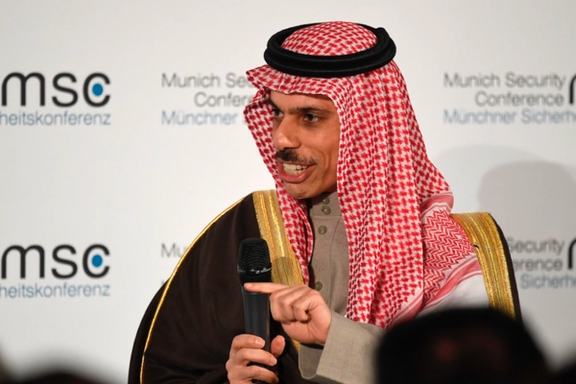
Saudi Arabia's foreign minister said on Friday that there is little optimism for the fate of negotiations to restore the nuclear deal between world powers and Iran.
Speaking on the sidelines of the UN General Assembly in New York, Prince Faisal bin Farhan said his country had concerns about a possible revived nuclear deal, especially over IAEA inspections. However, he said that even a flawed deal was better than no deal.
“We are hopeful that there is still potential for progress of the negotiations. But unfortunately, the signs, as of now, are not positive,” he said.
He added that there were still differences with Iran that currently prevent him from meeting with his Iranian counterpart, but said "we certainly have the intent to build a positive relationship with our neighbors in Iran".
Iranian drone technology poses an increasing threat to the Middle East, bin Farhan said and stressed the importance of cooperation among regional countries to confront the matter.
“The short-term approach must be based on building capacity to face existing risks,” he explained, adding that “Meanwhile, the long-term approach requires cooperation to understand threats and construct frameworks for an action plan that could help in building future technologies for confronting this danger and protecting ourselves and our partners from it.”
A meeting of the Persian Gulf Cooperation Council plus Jordan, Iraq and Egypt (GCC+3) was also held in New York on the sidelines of the General Assembly. The GCC+3 meeting, hosted by US Secretary of State Antony Blinken, was “very good” and followed up on President Joe Biden's visit to Jeddah in July, Prince Faisal added.
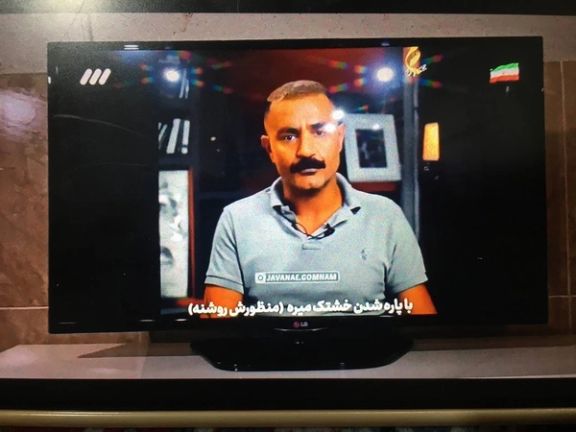
A short clip of opposition views aired by Iran’s state broadcaster on Friday created speculations that the state TV was hacked but it turned out not to be the case.
The clip was aired intentionally as part of Tehran’s propaganda to undermine popular protests and link it to foreign-based figures advocating what the TV believes are extremist views.
For a couple of minutes a video clip showed Iranian singer-songwriter Shahin Najafi as well as some other outspoken critics of the regime.
Najafi said the main issue in the Islamic Republic is not only hijab – or the compulsory dress code – but the entire regime. “This is not the ultimate goal of the protesters,” he said, adding that the final goal is overthrowing the Islamic Republic.
“Alcohol must be legal; discos must be legal; dancing and concerts should be legal,” he said, noting that this regime should not last.
The attempt was meant to promote the Islamic Republic’s propaganda that the ongoing protests are because of Mahsa Amini’s death, but a conspiracy to overthrow the regime.
During the past few days Anonymous hacking group has been targeting many websites belonging to the Islamic Republic entities and organizations, including the official websites of President Ebrahim Raisi and Supreme Leader Ali Khamenei.
The group started its cyber operations against the Islamic Republic in solidarity with the ongoing protests.
The hacking group targeted many other state-run websites and services and claimed that more than 2,000 street surveillance cameras were also hacked to prevent the government from surveying the protests and identifying people.